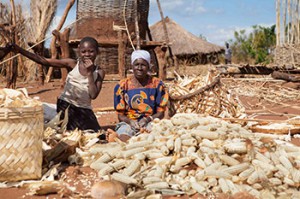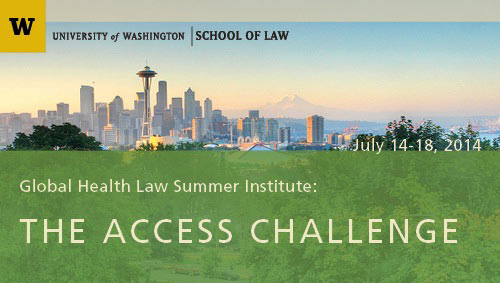Posted on June 9, 2014
By Tim Hanstad, President and CEO of Landesa and Board Member of Global Washington
 Arguably, there is no other continent on the planet that has more at stake in the post-2015 development agenda discussions than Africa.
Arguably, there is no other continent on the planet that has more at stake in the post-2015 development agenda discussions than Africa.
Africa is largely seen as having made the least progress toward the existing Millennium Development Goals, and much of the current discussion is focused on finding more meaningful, cross cutting, fair, and impactful goals and targets, and ways to measure them that are as relevant to Africa as they are to other areas.
As world leaders, including those from Tanzania, Ghana, and Kenya which plays a prominent role in the discussions as a member of the Open Working Group, continue these discussions to shape the post-2015 development agenda, it is useful to step back and consider the Middle-eastern parable of the drunkard and the streetlight.
Read more: http://africagreenmedia.co.za/targeting-success-in-the-post-2015-development-agenda/
Posted on June 2, 2014
By Kathleen Lemly

The University of Washington School of Law is pleased to announce that it is sponsoring a Global Health Law Summer Institute from July 14-18, 2014. Keynote speakers include:
- Dr. Allyn Taylor, Georgetown University
- Bruce Plotkin, International Health Regulations Secretariat Team Lead, World Health Organization
- Juan Carlos Botero, World Justice Project
- Thomas J. Bollyky, Senior Fellow for Global Health, Economics, and Development, Council on Foreign Relations
- Richard Wilder, Bill & Melinda Gates Foundation
- Dan Laster, General Counsel, PATH
- Dr. Kristie Ebi, and many other leaders in global health law
Registrants can sign up for a single day, three days or all five days of the program.
Continue Reading
Posted on May 27, 2014
By Bill Gates, Founder and Technology Adviser of the Microsoft Corporation and Co-Chair of the Bill & Melinda Gates Foundation, a Global Washington member.
SEATTLE – Bono calls the economist Jeffrey Sachs “the squeaky wheel that roars.” To me, Sachs is the Bono of economics – a guy with impressive intelligence, passion, and powers of persuasion who is devoting his gifts to speaking up for the poorest people on the planet. So it was no surprise to me that a journalist would find Sachs to be a compelling central character for a book – and a good way to draw readers into the potentially dry subject of international development.
Read more at: http://www.project-syndicate.org/commentary/bill-gates-explains-why-the-millennium-villages-project–though-a-failure–was-worth-the-risk#C7TOIQoB0AyTk4im.99
 Arguably, there is no other continent on the planet that has more at stake in the post-2015 development agenda discussions than Africa.
Arguably, there is no other continent on the planet that has more at stake in the post-2015 development agenda discussions than Africa.